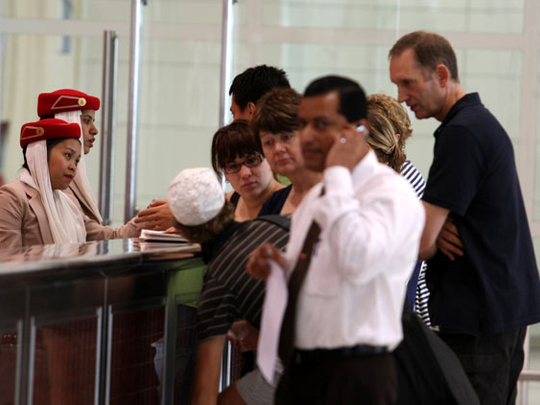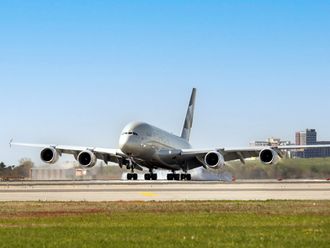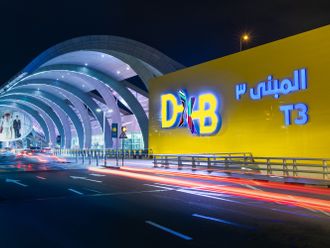
Dubai: Middle Eastern carriers such as Emirates and Etihad Airways have strongly opposed the ruling by the EU Court of Justice upholding the plan to charge airlines for carbon emissions for using Euro-pean airspace starting January 1.
Global carriers on Wednesday lost a battle to overturn the European Union's emissions trading scheme (ETS) when Europe's highest court — the Court of Justice of the European Union (CJEU) — upheld the union's plans to charge any foreign airline that lands or takes off in Europe for carbon emissions.
The move that will result in higher ticket prices, while also pushing airlines towards limiting their carbon output, was not welcomed by carriers.
Emirates estimates that in 2012 alone it will cost the airline over €40 million (Dh192 million) to purchase additional emissions allowances to comply with the scheme, and well over half-a-billion euros in the nine-year period to 2020.
"Over 25 per cent of Emirates passenger and cargo operations fly to and from the EU; thus the impact on Emirates network is significant," Emirates President Tim Clark told Gulf News.
He added that Emirates fully complied with the EU ETS by submitting its emissions and tonne-kilometre monitoring plans and 2010 reports to the United Kingdom Environment Agency (Emirates' EU ETS regulator).
Etihad Airways would also end up bearing an extra cost of €310 million over the next nine years, according to Linden Coppell, Etihad's Head of Environment, based on the carrier's forecast growth rate of traffic into Europe and the cost of carbon.
In a reaction to the latest court ruling, Emirates said yesterday that the carrier "continues to oppose" the unilateral nature of the EU ETS and is "heartened by the growing, united opposition of some 30 of the world's most important economies".
An Etihad spokesperson said: "Etihad Airways remains opposed to the European Union's Emissions Trading Scheme. We consider it to be more an anti-competitive tax on non-European airlines than an attempt to promote environmentally sustainable practice by the aviation industry."
He added that it remains hopeful that a much fairer and more appropriate mechanism for managing aviation emissions at a global level, led by the International Civil Aviation Organization, will be implemented.
Emirates' Clark said: "The solution remains a global ICAO-led initiative."
Global aviation trade body the International Air Transport Association (IATA) has also expressed disappointment over the EU court's decision. It stated that it represents a European legal interpretation of EU ETS while the success of Europe's plans depended on how non-European states would view its legal and political acceptability.
"The decision is a disappointment but not a surprise. It does not bring us any closer to a much-needed global approach to economic measures to account for aviation's international emissions," said Tony Tyler, IATA Director General and CEO.
Global approach needed
He added that "unilateral, extra-territorial and market distorting" initiatives such as the EU ETS are not the way forward. "What is needed is a global approach agreed through the ICAO," Tyler said.
According to IATA estimates, the air transport industry has made global commitments to improving fuel efficiency by 1.5 per cent annually to 2020, to cap net emissions from 2020 and to cut net emissions in half by 2050 (compared to 2005 levels). "A global framework for economic measures is a critical component of our strategy to achieve these challenging targets. But we won't get agreement on a global approach if states are throwing rocks at each other because Europe wants to act extra-territorially," said Tyler.
He added: "Europe should take credit for raising the issue of aviation and climate change on the global agenda. But what is needed now is for Europe to work with the rest of the world through ICAO to achieve a global solution."












